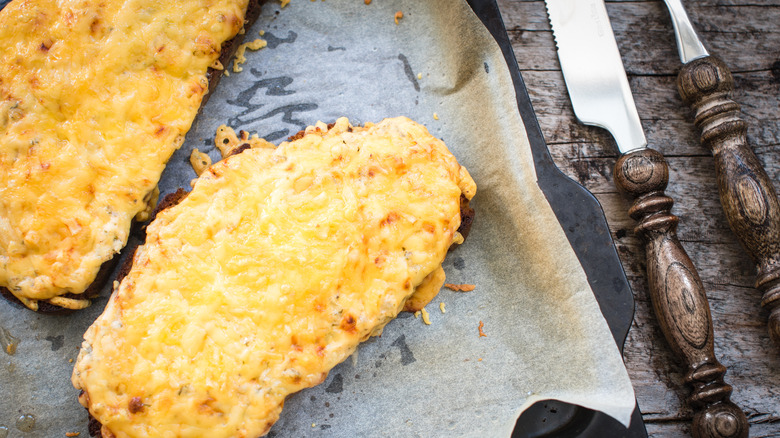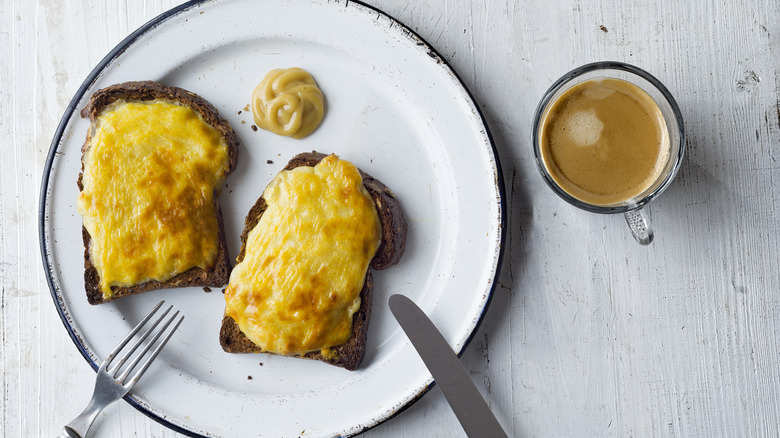The Ingredient That Makes Buck Rarebit Different From Welsh Rarebit
Welsh rarebit has a misleading name — even more so if you call it Welsh rabbit. The dish is not definitively Welsh, according to some historians, nor does it contain rabbit or any other meat one might associate with the words "rare" and "bit." In a nutshell, it's the other side of the pond's answer to cheesy bread. The hearty, comforting snack, which dates back centuries, is typically made from a saucy combination of cheeses and spices that's spiked with beer and poured over thick slices of toast.
The dish's myriad variations have similarly deceptive names. Buck rarebit, for instance, does not contain a trace of male deer. Rather, the "buck" in question simply refers to a fried or poached egg nestled on top of the bubbly cheese. Whether or not you approve of its name, it's highly worth it to go buck on your rarebit for a little breakfast-appropriate flair without much extra time or effort.
Put an egg on it
You can prepare your egg for buck rarebit however you want, but as with so many egg-topped toasts, the yolk is typically kept runny. When mixed with the already-luxurious cheese sauce, a runny yolk will add even more richness to the dish.
For a perfect sunny-side-up egg (or buck, if you will), try cracking it into a fine-mesh strainer to let the excess whites fall through — a method popular chef and cookbook author J. Kenji Lopez-Alt uses when making poached eggs. This will safeguard against that unappetizing jiggly film that sometimes clings around the yolk and, in turn, will help you turn out a runny center with fully cooked whites.
If you're not a fan of frying, a poached egg will be equally delicious on top of Welsh rarebit. If you've had trouble in the past with the famously tricky method, try using one of several unconventional egg-poaching techniques, like dropping your eggs in an Instant Pot. If that sounds like too much work, a soft-boiled egg would work just as well.
When the egg entered the chat
While historians can trace the first use of the term Welsh rabbit to the 18th century (though the dish itself is said to have originated two centuries earlier under the name caws pobi, which means toasted cheese in Welsh), buck rarebit didn't officially enter the chat until much later — at least not under that name. According to the Oxford English Dictionary, the term appeared in J. Lindsay and V. H. Mottram's "Manual Modern Cookery" in 1927. Its recipe for buck rarebit instructed to "poach the egg and serve on top of the cheese" after said cheese has been slathered onto hot toast. A second reference to buck rarebit, spotted in a 1959 novel by Peter Bull, hinted at its use as a fortifying hangover cure.
It's possible that buck rarebit's nonsensical name is an extension of the alleged joke of Welsh rarebit. Some historians have it that the English changed the name of the dish from caws pobi to Welsh rarebit to make it sound fancier than it is, possibly poking fun at the dish's origins in impoverished households. Whatever you decide to call it, it's a good excuse to eat cheese for breakfast.


